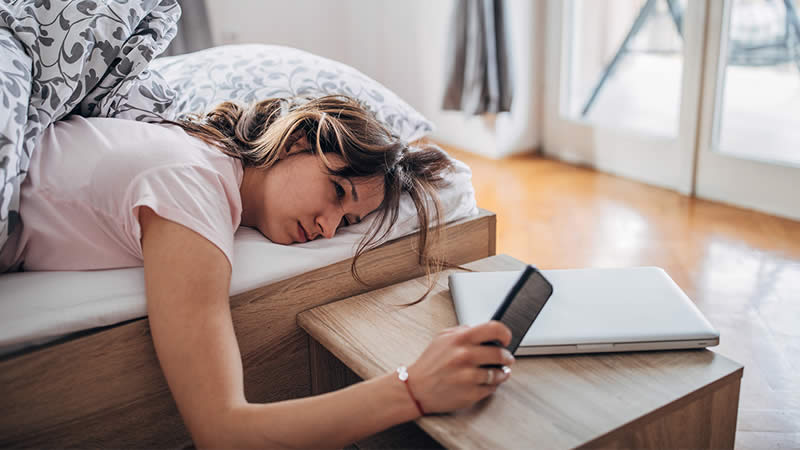There are many things that can interfere with our normal sleep and keep us up at night, lying in bed for hours, just waiting to fall deeply asleep. According to the Division of Sleep Medicine at Harvard University, everything from artificial light to substances like caffeine and prescription medications can contribute to difficulty in falling asleep.
While we can try to address these external factors individually, what if there was a single hack that you could do to get yourself sleepy before bed and help you fall asleep faster? Luckily there is the hormone, melatonin. Melatonin is produced in your body in response to the natural cycles of light.
More is produced when it gets dark and less when it is light (via Mayo Clinic), which is one of the reasons you naturally feel more sleepy at night than in the daytime. According to the Mayo Clinic, melatonin supplements may be effective in treating a variety of sleep disorders including circadian rhythm disorder, when your internal clock is off, delayed sleep phase, insomnia, and even, jet lag.
How do melatonin supplements work?
According to the National Health Services of the U.K. (NHS), melatonin acts directly on receptors in your body to make you sleepy. Because the body’s natural cycles and melatonin production are often hijacked by modern lifestyles, taking melatonin may be a way to help you feel sleepy and fall asleep before bedtime again. While melatonin is available over the counter at health food stores across the U.S., in the United Kingdom, it is commonly prescribed to adults over 55 who have sleep problems (via NHS).
Melatonin supplements are associated with a variety of side effects, however, including still feeling drowsy when you wake up in the morning, headaches, and feeling irritable or restless (via NHS). For this reason, melatonin supplements are usually prescribed as a short-term treatment for insomnia and other sleeping disorders, while the patient is advised to make other lifestyle changes and sleeping habits to help improve their sleep.
Serious side effects from melatonin — blurred vision, and vertigo, to name a few — are rare but do happen, so you may want to consult with your physician before trying this hack to get you sleepy before bed, just to be safe (via NHS).



